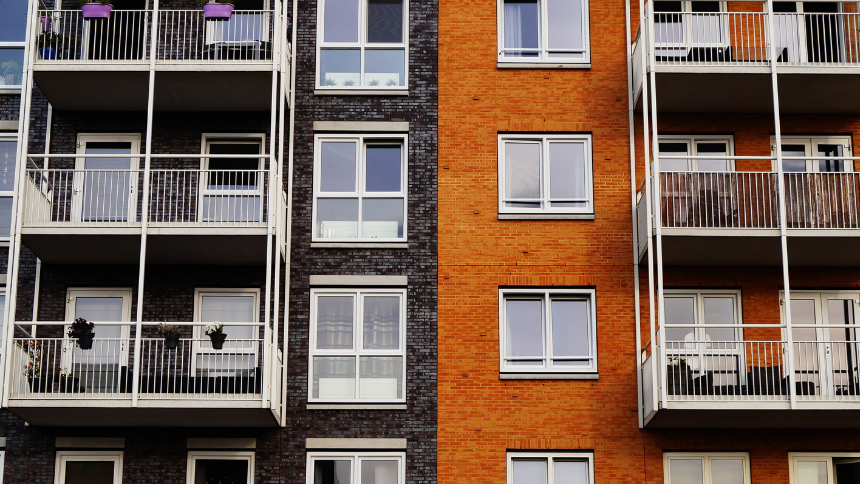
Renting in Knoxville | The good, the bad, the future
If you’re reading this from your apartment right now, I don’t have to tell you that rent has gone up astronomically. If you’re not a renter, then buckle up and get ready to learn why.
Most people have paid rent at some point in their lives. Now, renters feel like they’re paying more than ever because a lot of them are.
For the last several months, Knoxville has continuously been ranked among the top 10 metros in the country with the fastest rent growth. Renters here are paying more, and few units are unoccupied. On average, rents in the Knoxville market are about $447 per month more than they were pre-pandemic.
Why?
“That’s a big question,” said Hancen Sale, Governmental Affairs and Policy Director for the Knoxville Area Association of Realtors (KAAR).
The short answer is “a result of elevated migration since the pandemic, and under-building over the past decade,” as explained in KAAR’s most recent Market Pulse report. Sale describes it more as a shift in priorities caused by the pandemic.
“Generally speaking, the history of rents is that when people start making more money, rents go up,” said Sale. “What we saw in the pandemic was that people were dedicating a historic amount of their incomes to housing because suddenly that became a big priority.”
People wanted their own space, and to enjoy the homes they were suddenly spending a lot more time in.
“People were looking for extra space,” he said. “We saw more people who might be roommates moving out into their own apartments, and that creates demand.”
Some also came to the Knoxville area from other cities or states. Anecdotally, some apartment complexes noted they saw more tenants looking for short-term rentals after selling their homes in a hot rental market and still looking for new ones to buy.
“Ultimately it’s a supply and demand problem,” said Sale.
When it comes to occupancy rates, Knoxville’s remains one of the highest in the nation at 97.3 percent, meaning less than 3 percent of existing apartment units are available. Sale said a healthy rental market generally means 94-95 percent of units are occupied.
The housing market is partially to blame, but not in the way you may think.
People planning to buy a home for the first time were unable to keep up with the high prices and competitive market that came out of the pandemic. Instead of buying, they renewed their leases.
“It just created a situation where there wasn’t a lot of turnover,” said Sale. “There weren’t a lot of available units. So supply was extraordinarily constrained over the last two and a half years.”
So why not just build more apartments?
“We haven’t been building housing to the extent that we need to for more than a decade now,” said Sale.
The city is working on that, albeit slowly. There are new complexes going up in Turkey Creek and South Knoxville, for example. Plans for a new 348-unit complex on the South Knoxville riverfront across from Neyland Stadium were just announced this week.
That complex, called Livano Knoxville, will include studio, one-, two- and three-bedroom apartment homes averaging approximately 930 square feet, including 35 income-restricted workforce units. A groundbreaking is expected this month.
Sale said a record number of multi-family rental units like these are under construction right now. In the fourth quarter of 2022, 2,094 new units were under construction and scheduled to hit the market in 2023. That’s up from an average of about 825 units under construction at any given quarter of the year from 2018 to 2021.
“There’s definitely some good news for renters in terms of a slower pace of rent growth,” said Sale. “The biggest rent decreases will be at the top end of the market because that’s where most of the new supply will be.”
While it seems like Knoxville is growing with or without new living spaces to show for it, Sale said the local economy will be worse off if more housing options aren’t made available.
“That’s the backbone of our economy,” he said. “We can’t grow without housing. It is underlying everything that we do. We can’t attract new businesses if we don’t have the housing.”
Changes will have to happen for more homes to be built. Right now, zoning ordinances prevent residential buildings in some areas, stopping growth in different parts of Knoxville. A county-wide planning effort is underway now, but that takes time.
“In many ways, meeting the demand for housing is a partnership between the government and the business community who are actually providing housing. But it starts with the government allowing it,” said Sale.
Until then, we wait, as slowly more places to live are built in Knoxville.
“If we want to maintain our quality of life and support the people who are essential workers, the people who keep our economy up and running, we have to keep housing costs under control,” said Sale. “And ultimately, that comes back to how much we build.”
Like what you've read?
Forward to a friend!

